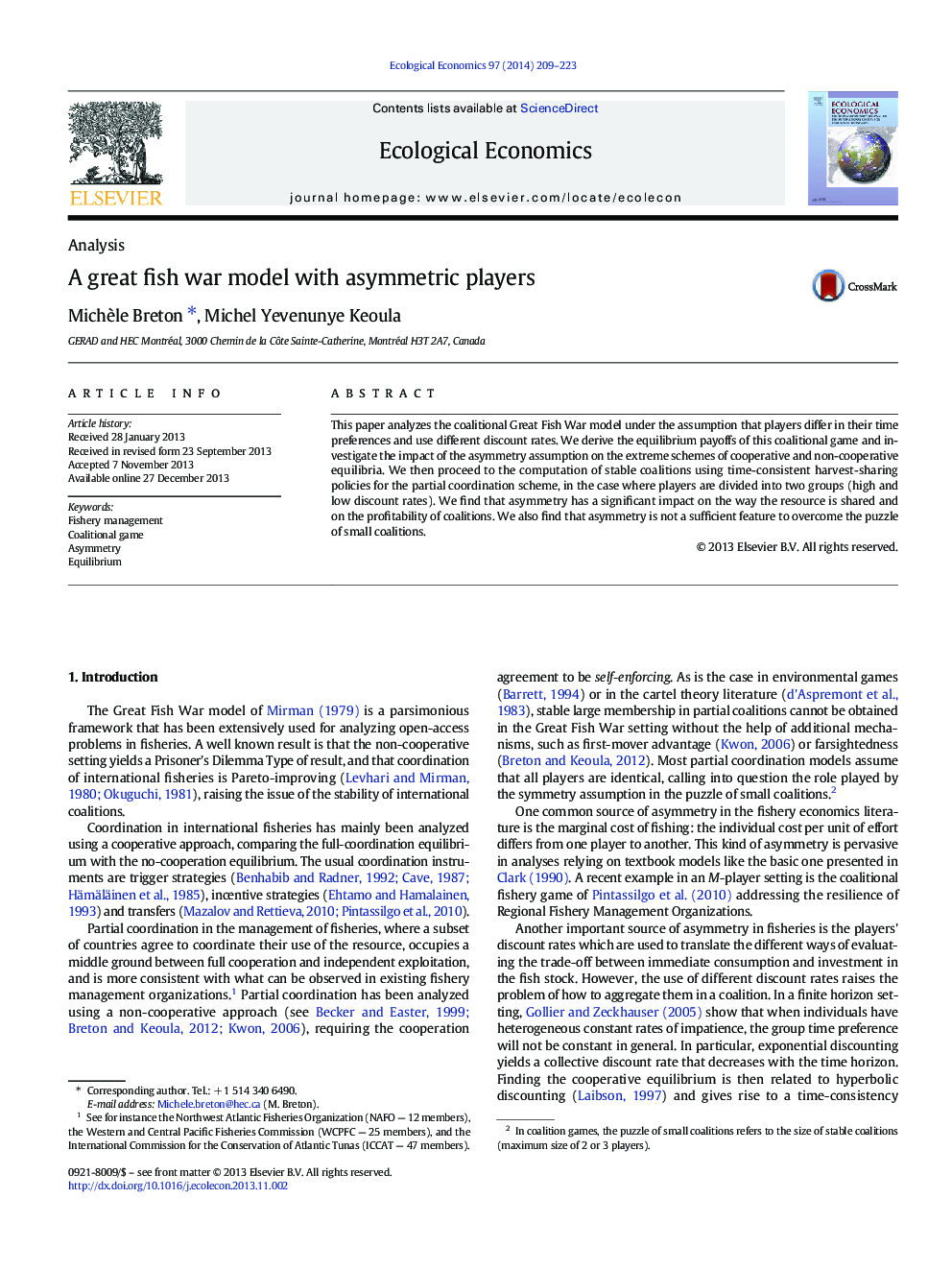| Article ID | Journal | Published Year | Pages | File Type |
|---|---|---|---|---|
| 5049822 | Ecological Economics | 2014 | 15 Pages |
â¢We analyze the coalitional Great Fish War model where players have different discount rates.â¢We derive the cooperative, non-cooperative and partial equilibrium solutions.â¢We study profitability and stability for the coalition vs fringe model.â¢We consider simultaneous moves and first-mover advantage.
This paper analyzes the coalitional Great Fish War model under the assumption that players differ in their time preferences and use different discount rates. We derive the equilibrium payoffs of this coalitional game and investigate the impact of the asymmetry assumption on the extreme schemes of cooperative and non-cooperative equilibria. We then proceed to the computation of stable coalitions using time-consistent harvest-sharing policies for the partial coordination scheme, in the case where players are divided into two groups (high and low discount rates). We find that asymmetry has a significant impact on the way the resource is shared and on the profitability of coalitions. We also find that asymmetry is not a sufficient feature to overcome the puzzle of small coalitions.
